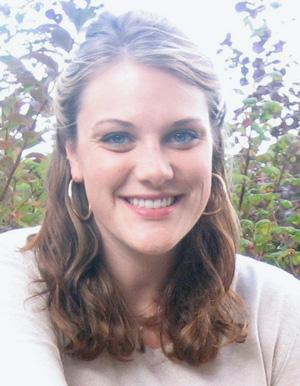
By Alex Iben
"The Catholic Church is more than a religion. It is a political power and there will be no peace in Ireland until it is crushed."
As I read these words painted on the side of a home in Belfast, a chill ran down my spine. I had traveled to the small Irish city for a short, inexpensive weekend getaway. However, sitting in the backseat of the gray Volkswagen that late October day in 2010, I felt nothing like an adventurous world traveler. My driver (and tour guide) was an avid Protestant from Belfast; my friend and traveling companion, an English atheist; and I was an American “cradle-Catholic” who suddenly felt isolated, out of place, and frightened.
We continued through the neighborhood, then took a sharp right. The road was lined with a string of connected houses on the right and a field to the left. Suddenly, we stopped outside a dilapidated pink cement building. Vines were growing up the sides, and all the windows were broken and lined with jagged glass. Above the building’s weathered front door, stood a statue of an angel with one arm broken off. We sat in silence for several minutes, taking in the sight, before the Protestant driver spoke. “This used to be a prison for the captives. Lots of the Catholics were tortured in there.”
Religious hatred has a long history in Belfast, and the Peace Walls (or Peace Lines) are a daily reminder to those who live there. Constructed in 1969, these walls, built of iron, brick, steel and barbed wire, were intended to decrease violent outbreaks by physically separating Catholic and Protestant neighborhoods. The gates in each wall are open during the day, but closed at sundown. Reaching heights of 25 feet, they were initially erected as temporary solutions to religious violence. However, the walls’ effectiveness in separating religious zealots, coupled with the fear of a modern-day uprising should the walls be torn down, has caused Belfast officials to keep the barriers in place. In some parts of Belfast, the walls have even been lengthened over the past 42 years to include more neighborhoods.
My companions and I drove alongside the Peace Wall and eventually crossed from one side to the other. The flying flags of England, representing the Protestants in Belfast, were replaced with Irish flags adorned with bright squares of green, white and orange. These flags fly high above the Catholic houses in this divided city. While I felt more at ease in the Catholic neighborhood, our driver’s endless gruesome tales of religious hatred and violence continued to send icy waves down my spine.
Ever since moving to Glasgow, Scotland, from Iowa City for postgraduate study in September 2010, the society in which I lived constantly reminded me that Catholicism was only just tolerated, and that weekend vacation in Ireland wasn’t any different. Based on figures from 2003, Scotland’s total population is about 5 million, with only 17 percent Catholic. The Archdiocese of Glasgow covers an area with a population of roughly 780,000, but only 28.8 percent of these people are Catholic.
My Catholic faith has always been important to me and continued to grow stronger throughout college, as did my involvement in church activities. Upon arriving in Glasgow, I felt completely lost and alone. I knew no one. I couldn’t understand the strong Glaswegian accent, and I was horribly homesick. I knew I had to find a Catholic church immediately. The Catholic chaplaincy at the University of Glasgow was the answer. After attending my first Mass there, I introduced myself to the chaplain, Father John Keenan, and the assistant chaplain, Sister Karen. They welcomed me with open arms and I instantly felt at home in another loving Catholic community. Every Tuesday, I have tea with Sr. Karen as we discuss current events, questions and living our lives as Catholics. She helps settle my qualms about life after graduate school and common issues that face any 20-something woman.
Although she is much wiser, I often hope that I bring some comfort to her as well. I don’t know what it is, but every time I see her smile or laugh during our conversations, I feel the Holy Spirit moving between us. These moments are the times when God’s love is overflowing from my heart, and I think back to Matthew 18:20: “When two or more are gathered in my name, there I am in the midst.” I feel it is especially during these moments God is calling my name, inviting me to be a better person and strengthening my faith in our Church, its followers and our beliefs.
(Alex Iben is a proud graduate of Regina Inter-Parish Catholic Education Center in Iowa City. She graduated from the University of Iowa in May 2010 and is pursuing her Master of Letters degree in ancient drama from the University of Glasgow in Scotland.)








